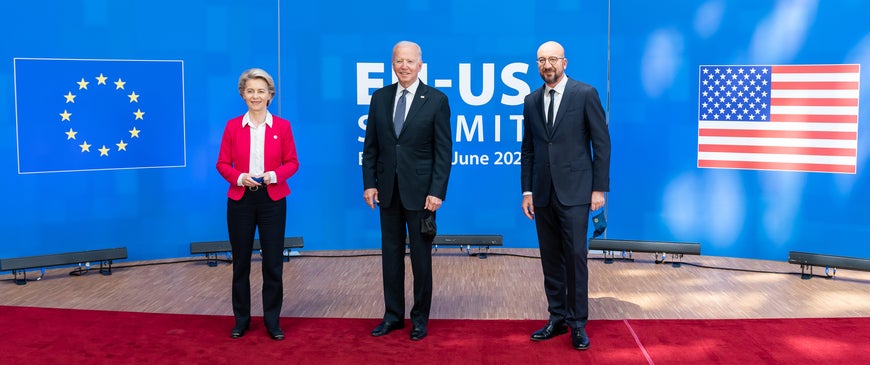The EU and the US plan to boost co-operation on digital policy. They should not prioritise regulatory harmonisation, and instead work on areas where mutual compromise is more realistic.
When US President Joe Biden met EU leaders in Brussels in June, one of the most important things they agreed was that there should be increased transatlantic co-operation on technology policy. They announced the creation of the Trade and Technology Council (TTC) – a new forum for discussion on technology standards and governance – and a formal dialogue on the thorny issue of competition in technology markets. Biden’s attention to digital issues, his willingness to work with the EU, and his stated commitment to shared values in the digital sphere are a relief to the EU after the Trump years. Europeans are also cautiously optimistic about resolving the dispute over digital services taxes, after the G7 agreed to amend international tax treaties to ensure digital giants can be forced to pay tax in the countries where they make sales.
The fanfare about greater co-operation should be greeted with a degree of scepticism, however. Many past attempts at transatlantic policy co-ordination – such as the New Transatlantic Agenda, the Transatlantic Economic Council, and the Transatlantic Trade and Investment Partnership (TTIP) – sputtered out with little achieved. In some cases, these initiatives even caused major rifts in domestic politics on both sides of the Atlantic. The joint EU-US statement announcing the TTC and the competition dialogue suggests that Europe should not get carried away. For example, the statement contains little detail about how these dialogues will work in practice, reportedly because of internal disagreements on both sides about basic procedural details.
insight_ZM_digital_13.7.21To read the full report from the Centre for European Reform (CER), please click here.
Image from the Centre for European Reform.


